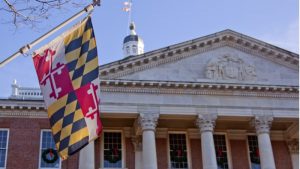The Maryland Department of Labor’s Office of Financial Regulation has deployed a new cybersecurity monitoring service offered by network security provider SecurityScorecard to enhance the office’s supervision of Maryland financial institutions and further its consumer protection mission.
Maryland Gov. Wes Moore announced that Francesca Ioffreda will serve as the state’s new chief innovation officer.
The Maryland Department of Information Technology (DoIT) announced that “white hat” hackers found more than 40 exploitable vulnerabilities in the state’s first-ever bug bounty program.
The state of Maryland has secured $1.7 million in Federal funding to pilot the use of drone aircraft systems to expand access to healthcare resources.
Maryland is the latest state to join the Internal Revenue Service’s (IRS) Direct File online tool for the 2025 filing season, which will enable the preparation and filing of taxes electronically and free of charge.
Frederick County, Md., Executive Jessica Fitzwater has appointed Ty Howard as chief information officer (CIO) and director of the Division of Interagency Information Technologies effective July 15.
State leaders in Maryland have rolled out new online resiliency tools to help provide important economic data to local economic and government decision makers.
The Maryland Department of Information Technology has announced the appointment of Natalie Evans Harris as the state’s new chief data officer (CDO), effective May 15.
Anne Arundel County, Md., has announced the launch of its new State of the Forest Dashboard that will provide policymakers and the public with a better understanding of the county’s forestry goals.
Following the collapse of the Francis Scott Key Bridge in Baltimore last month, the state of Maryland began what is sure to be a lengthy recovery process. To help aid in that process, Maryland Gov. Wes Moore has launched a new website that will serve as a central hub for Marylanders in search of Federal, state, and local resources and programs related to the bridge collapse.







